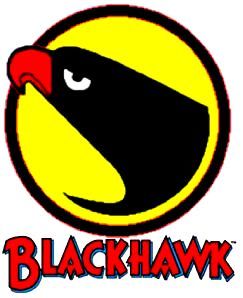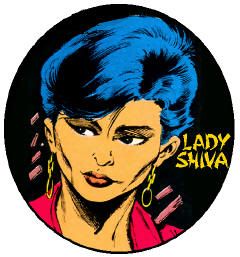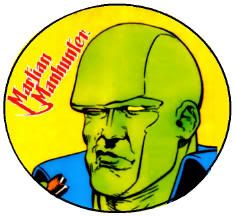
"The problem with other superheroes was that the most convenient way of becoming one had already been taken. Superman was from another planet. One of the self-denigrating laws of all science fiction is that every other planet is better than ours... Superman had all other planets tied up legally. Those one or two superheroes who defied the ban were taken apart by lawyers (nothing as super as a writ)... The answer, then, rested with science... The Shield... Steel Sterling... Captain America... the Human Torch... And not only science... flying men, webbed men, robot men, ghost men, minuscule men, flexible-sized men -- men of all shapes and costume blackening the comic-book skies like locusts in drag..."
"Understandably, this Pandora's box of men-of-steel was viewed gravely by Superman... The most savage reprisals in comic books were, just as in revolutions, saved not for one's enemies but for one's own kind. If, for a moment, Superman may be described as the Lenin of superheroes, Captain Marvel must be his Trotsky." Jules Feiffer continued by describing the Shazam cast as "A Disneyland of happy violence," with Dr. Sivana singled out as "uncannily" resembling Donald Duck. "The Captain himself came out dumber than the average superhero -- or perhaps less was expected of him. A friendly fullback of a fellow with apple cheeks and dimples, he could be imagined being a buddy rather than a hero, an overgrown boy who chased villains as if they were squirrels. A perfect fantasy figure for, say, Charlie Brown."
Feiffer took issue with the magic word "Shazam," a damned thing which worked for none of Captain Marvel's readership as it did for Billy Batson. "I had a vague feeling Captain Marvel was making fun of me. More and more of his adventures took on the tone of parodies... I was not prepared for frivolousness on the part of my superheroes!" Feiffer couldn't have cared less when Fawcett settled a lawsuit leveled by National, who felt Captain Marvel too resembled their Superman, and took the hero out of the game. His interests had moved on to more brutal but sophisticated fantasies, produced by a creator whose Wonder Man had also fallen prey to very similar litigation.
"Eisner had come to my attention a few years earlier doing a one-shot black-and-white feature called 'Muss "Em Up' Donovan in a comic book with the flop-oriented title of Centaur Funny Pages... Heroes and readers jointly conspired to believe the police were honest, but inept, well-meaning, but dumb -- except for good cops like Donovan,who were vicious. Arraignment was for sissies: a he-man wanted gore... wandered outside the reach of the law, pummeled everyone in sight, killed a slew of people -- and brought honor back to Central City, back to Metropolis, back to Gotham... In those pre-civil-rights days, we thought of that as a happy ending..."
"Will Eisner was an early master of the German expressionist approach in comic books... The underground terror of RKO prison pictures." Eisner had begun at Fiction House with 'Muss "Em Up' Donovan and Hawk of the Seas before moving on to the Quality Comic Group, where he helped create most of their signature features. "He'd draw a few episodes and abandon the characters -- bequeath them to Lou Fine, Reed Crandell, others. No matter. The Quality books bore his look, his layout, his way of telling a story... His high point was The Spirit, a comic-book section created as a Sunday supplement for newspapers..."
"Just as Milton Caniff's characters were identifiable by their perennial WASPish, upper middle-class look, so were Eisner's identifiable by that look of just having got off the boat. The Spirit reeked of lower middle-class: his nose may have turned up, but we all knew he was Jewish... What's more, he had a sense of humor. Very few comic-book characters did... Spirit's violence often turned in on itself, proved nothing, became, simply, an existential exercise... The Spirit could even suffer defeat in the end... Not that he wasn't virile. Much of the Spirit's charm lay in his response to intense physical punishment. Hoodlums could slug him, shoot him, bend pipes over his head. The Spirit merely stuck his tongue in his cheek and beat the crap out of them... I collected Eisners and studied them fastidiously. And I wasn't the only one. Alone among comic-book men, Eisner was a cartoonist other cartoonists swiped from."
The Great Comic Book Heroes is available from publisher Fantagraphics Books and from Amazon.com in either the slim essay-only or original hardcover formats, the latter with copious Golden Age reprints.

















No comments:
Post a Comment